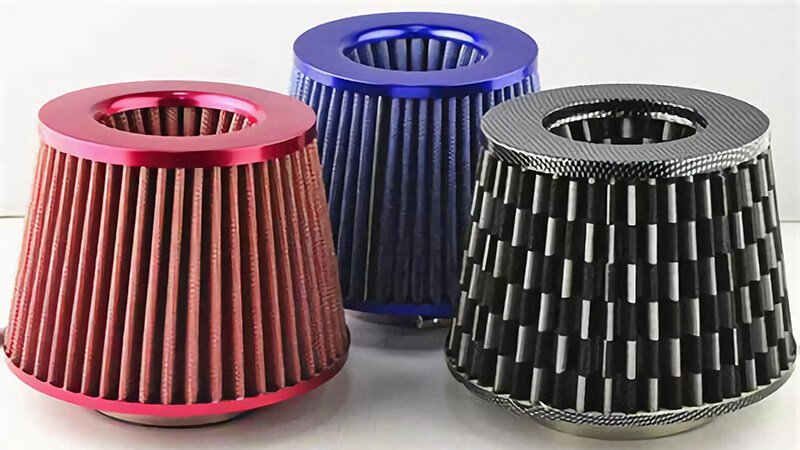Starting a wholesale business in the automotive air filter industry can be a lucrative venture, but it requires careful planning and research. The demand for quality air filters is growing, and knowing how to approach this market will be key to your success. Let’s explore the steps and strategies for starting this business.
To start an air filter wholesale business, you need to understand the market, choose the right suppliers, and focus on building strong relationships with distributors. By positioning yourself as a reliable source of quality filters, you can quickly tap into the growing demand for auto air filters.
In the next sections, we’ll dive deeper into the critical aspects of starting an auto air filter wholesale business, from choosing the right products to understanding the market dynamics. These insights will help you navigate the complexities of the industry and set you up for long-term success.
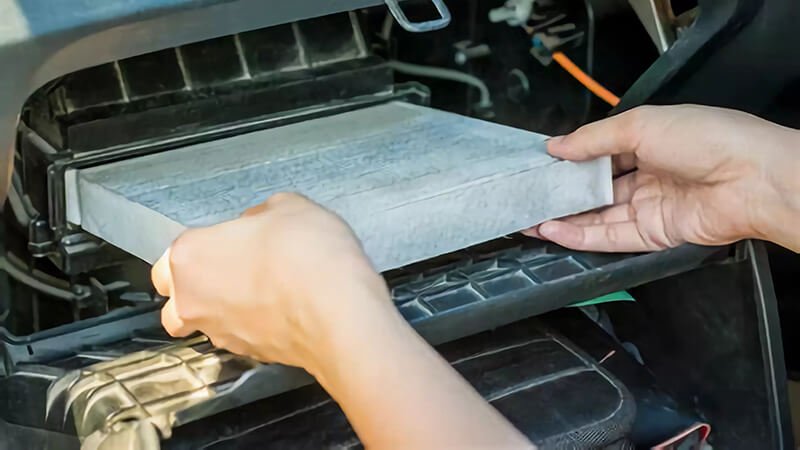
How to start an auto air purifier business?
Starting an auto air purifier business requires more than just a good product; it takes careful planning, market research, and strategic positioning. The demand for air purifiers is on the rise, and tapping into this market could be highly profitable. But how do you begin?
To start an auto air purifier business, focus on identifying your target market, sourcing reliable suppliers, and understanding the regulatory requirements. Building a strong online presence and marketing your products effectively will also be crucial for long-term success.
Starting an auto air purifier business can be a rewarding challenge, and there are several factors to consider before diving in. The first thing you need to do is identify your target audience. Are you catering to car manufacturers, auto parts retailers, or direct consumers? Each segment has different needs, and your approach will vary depending on who you're selling to.
For example:
- Car Manufacturers: These companies may require custom air purifiers for vehicle models, often in bulk. In this case, long-term contracts, bulk discounts, and just-in-time inventory systems may be necessary.
- Auto Parts Retailers: Retailers need to stock air purifiers that are widely compatible with various vehicle models. Offering a variety of standard, high-performance air purifiers with universal fitment can attract this segment.
- Direct Consumers: Selling directly to consumers means understanding the unique needs of individual buyers, focusing on factors such as convenience, price, and health benefits. Consumer demand for air purifiers that improve air quality within the car is growing.
Once you have identified your target audience, the next step is sourcing the right products. Auto air purifiers come in different types, including HEPA filters1, activated carbon filters2, and ionizer-based purifiers3. Each type has distinct features and applications:
- HEPA Filters: Known for their high filtration efficiency, HEPA filters are ideal for those concerned with trapping dust, pollen, and allergens.
- Activated Carbon Filters: These are designed to remove odors, smoke, and volatile organic compounds (VOCs), which may be crucial for urban car owners.
- Ionizer-based Purifiers: These purifiers help remove particulate matter and can be attractive to tech-savvy consumers.
Regulatory compliance is another critical area to focus on. Depending on the region you operate in, auto air purifiers must meet specific safety and environmental standards. It’s important to research your local regulatory environment and understand the certifications required for the products you plan to distribute. For example, in the European Union, CE certification4 may be required for air purifiers to indicate conformity with health, safety, and environmental protection standards.
The marketing strategy will play a crucial role in your success. With the rise of e-commerce, building a strong online presence is essential. Use search engine optimization (SEO) to improve visibility on search engines, and leverage social media platforms to engage with potential customers. Offering customer reviews and testimonials will also build trust and credibility for your brand.
Additionally, attending industry trade shows and auto expos is a great way to network and establish connections with potential buyers, suppliers, and partners. Don’t overlook the importance of a well-optimized website that clearly explains the benefits of your products, pricing, and customer service.

Who is the largest manufacturer of auto air filters?
When considering the auto air filter industry, it’s important to know who the key players are. Who holds the title of the largest manufacturer in the market? Understanding the dominant manufacturers can give you insights into where the industry is headed and how to compete effectively.
The largest manufacturers of auto air filters are typically established companies with extensive experience in the automotive parts industry. Key players include companies like Mann+Hummel5, Mahle6, and Donaldson7, which dominate the global market due to their innovation, product quality, and extensive distribution networks.
The auto air filter market is dominated by a few key players, and understanding their strategies can provide valuable insights for new entrants. Let’s look at the three largest manufacturers in more detail:
Key Manufacturers in the Auto Air Filter Market
| Manufacturer | Key Products | Global Reach | Notable Technologies |
|---|---|---|---|
| Mann+Hummel | Air filters, cabin filters, oil filters | Worldwide | Advanced filtration technology, eco-friendly solutions |
| Mahle | Air filters, oil filters, fuel filters | Europe, North America | Engine filtration solutions, high-performance parts |
| Donaldson | Air filters, hydraulic filters | North America, Asia | High-efficiency filters, long-lasting performance |
-
Mann+Hummel:
- Mann+Hummel is one of the largest and most recognized manufacturers of air filters globally. They offer a broad range of filtration solutions, including air filters, oil filters, and cabin filters. Their focus on advanced filtration technology and environmentally friendly solutions makes them a leader in the industry. Mann+Hummel’s extensive network allows them to serve both OEMs and the aftermarket sector.
-
Mahle:
- Mahle is another key player, providing a wide range of automotive parts, including air filters, oil filters, and fuel filters. Known for their expertise in engine filtration, Mahle manufactures products that meet high-performance standards. Their focus on sustainability and reducing emissions has made them a preferred supplier for OEMs and aftermarket businesses.
-
Donaldson:
- Donaldson specializes in air filtration systems and is well-known for its high-efficiency filters. Their filters are designed to enhance engine performance and longevity, making them a preferred choice for heavy-duty vehicles. Donaldson’s focus on industrial filtration also complements their automotive air filter solutions, offering a diverse product range to customers worldwide.
For wholesalers entering the market, it is essential to keep an eye on these dominant players. By offering products that align with the quality and standards of these manufacturers, you can carve a niche in the market. At the same time, focusing on unique selling points such as eco-friendly filters, customer support, or specific vehicle types can help you compete.
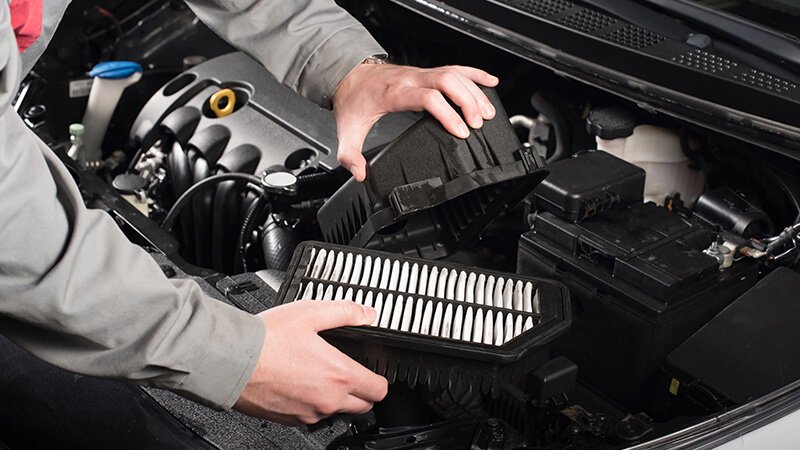
How big is the auto air filter market?
The auto air filter market is growing, but how big is it really? Understanding the size of the market can help you assess the potential for your business. Knowing the trends and growth rates can provide valuable insights for your strategy.
The global auto air filter market is expected to grow steadily in the coming years. With the rise of vehicle production, increased air quality concerns, and the push for environmentally friendly solutions, the market presents significant opportunities for wholesalers and manufacturers alike.
The auto air filter market is currently experiencing strong growth, and several factors are contributing to this upward trend. According to market research, the global market for automotive air filters was valued at USD 4.5 billion8 in 2020 and is expected to grow at a compound annual growth rate (CAGR)9 of around 6.5% from 2021 to 2028.
Key Drivers of Market Growth
| Driver | Impact on Market |
|---|---|
| Vehicle Production Growth | Increased demand for automotive filters due to rising vehicle production |
| Environmental Concerns | Growing awareness about air pollution driving demand for cleaner air in vehicles |
| Electric Vehicles (EVs) | The rise of electric vehicles has led to the need for specialized air filters |
| Technological Advancements | Enhanced filtration technology is attracting consumers looking for high-performance filters |
-
Vehicle Production Growth:
- As global vehicle production continues to rise, the demand for air filters is expected to increase as well. More vehicles on the road mean more air filters are needed for maintenance and replacement. This growth is particularly significant in emerging markets where vehicle ownership is expanding rapidly.
-
Environmental Concerns:
- The growing concern over air pollution and its effects on human health is driving the demand for air filters. More consumers are looking for ways to keep their vehicle air clean and healthy, especially in urban environments where pollution levels tend to be higher.
-
Electric Vehicles (EVs):
- With the increasing adoption of electric vehicles, there is a growing need for specialized air filters tailored to EVs. These vehicles have unique air filtration requirements, such as filters designed for battery cooling systems and cabin air purification.
-
Technological Advancements:
- Technological advancements in air filtration, such as the development of HEPA filters, activated carbon filters, and ionization technologies, are attracting more consumers. As these filters offer higher efficiency and longer life, they have become a preferred choice for vehicle owners looking to improve air quality.
The continued growth of the automotive industry, along with technological innovations, makes the auto air filter market a promising sector for new businesses to enter. By offering cutting-edge products that meet consumer demand for cleaner air, businesses can capture a share of this expanding market.
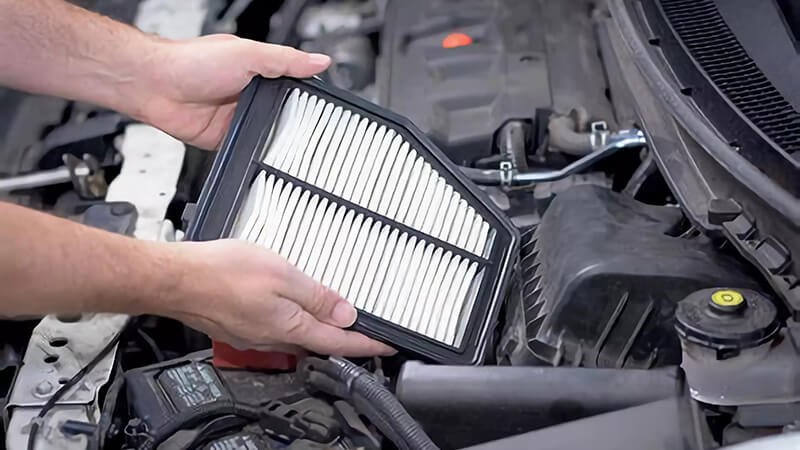
How much does it cost to make an auto air purifier?
When starting an air purifier business, one of the first things you need to understand is the cost of manufacturing. What goes into making an auto air purifier, and how much does it cost to produce one? Let's explore the cost factors involved in this process.
The cost of making an auto air purifier depends on various factors such as the type of filter, materials used, and manufacturing processes. On average, the cost can range from a few dollars for basic models to several hundred dollars for high-end, specialized purifiers.
The cost of manufacturing an auto air purifier can vary greatly depending on several factors. These factors include the type of air filter10, materials used, and production scale11. Let’s break down these costs:
Factors Affecting Manufacturing Costs
| Factor | Impact on Cost |
|---|---|
| Filter Type | HEPA, activated carbon, and ionizer filters have varying costs based on their materials and manufacturing complexity |
| Materials | Premium materials such as high-strength carbon or advanced filter media can increase production costs |
| Manufacturing Process | Automated processes reduce labor costs but require higher initial investment in machinery |
| Scale of Production | Large-scale production reduces unit costs, while small-scale runs increase per-unit costs |
| Shipping and Import Duties | Importing parts or finished products from overseas can add extra costs due to shipping fees and tariffs |
-
Filter Type:
- The type of filter used in an air purifier is one of the most significant cost factors. HEPA filters, for example, are known for their high filtration efficiency but require specialized materials and manufacturing processes. As a result, they tend to be more expensive to produce than basic foam or carbon filters.
-
Materials:
- The quality of the materials used also impacts the overall cost. High-quality filter media, such as activated carbon or synthetic fibers, are more expensive but offer better performance and durability. Choosing high-quality materials can raise the price but may also lead to higher customer satisfaction and brand reputation.
-
Manufacturing Process:
- The manufacturing process itself can influence costs. Automated production lines often result in lower labor costs, but they require significant upfront investments in machinery. Conversely, manual labor-intensive production may have higher ongoing labor costs but can be more flexible for smaller production runs.
-
Scale of Production:
- Larger production volumes typically result in lower per-unit costs due to economies of scale. By producing larger batches, manufacturers can spread fixed costs (such as machinery and overhead) across more units, reducing the overall cost per purifier. However, for smaller businesses, this means that production may be more expensive on a per-unit basis if they are not yet scaling up.
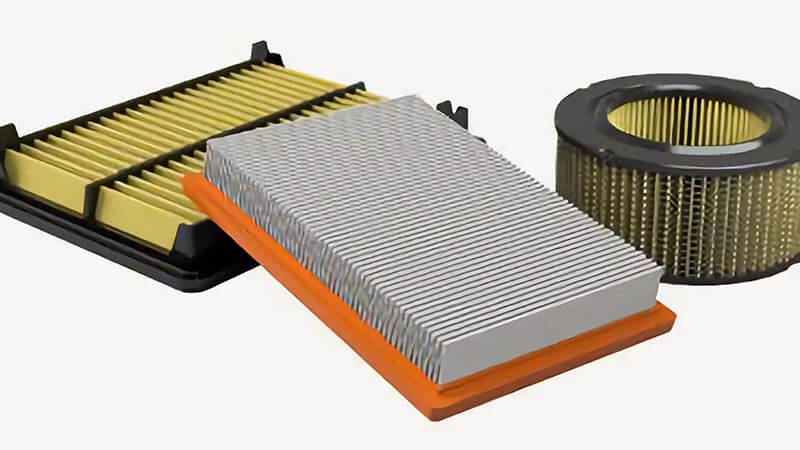
Conclusion
Starting an auto air filter wholesale business requires a clear understanding of the market, sourcing quality products, and establishing a reliable supply chain. By focusing on the key factors of product quality, market trends, and cost, you can successfully navigate the complexities of the industry and build a thriving business.
-
Learn about the high filtration efficiency and uses of HEPA filters for air purifiers. ↩
-
Discover how activated carbon filters remove odors, smoke, and VOCs. ↩
-
Understand the functionality and advantages of ionizer-based air purifiers. ↩
-
Learn about CE certification requirements for product safety in the EU. ↩
-
Learn about Mann+Hummel's innovations and global impact on air filtration. ↩
-
Discover Mahle's contributions to automotive air filtration and their market position. ↩
-
Understand how Donaldson leads in air filtration technology for the automotive industry. ↩
-
Learn about the valuation of the global auto air filter market in 2020. ↩
-
Understand the CAGR of the auto air filter market and its future potential. ↩
-
Learn about different air filters and their impact on the cost of auto air purifiers. ↩
-
Understand how production scale influences the overall cost of auto air purifiers. ↩

